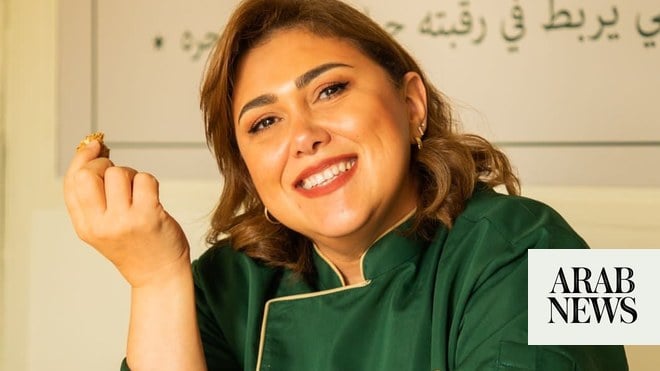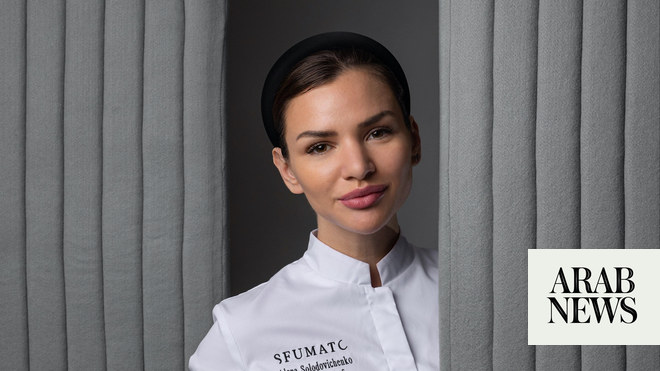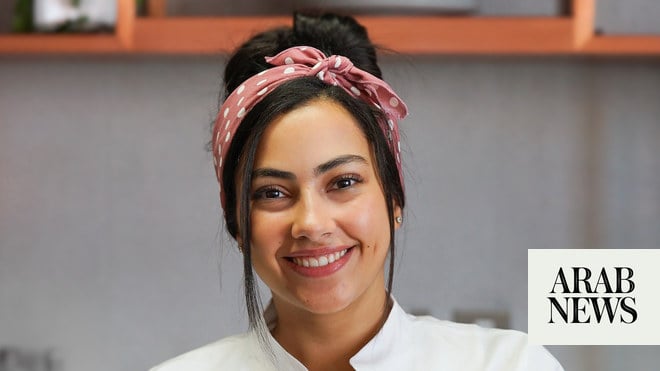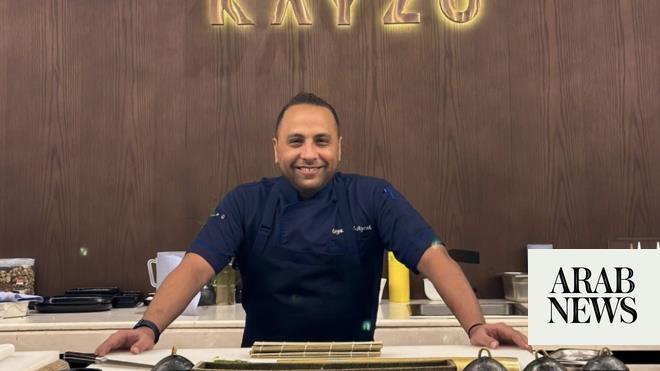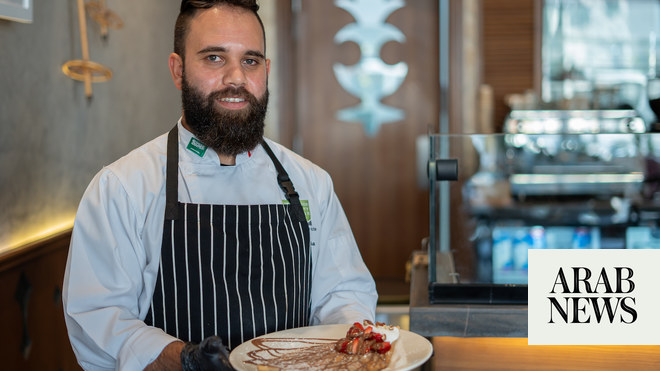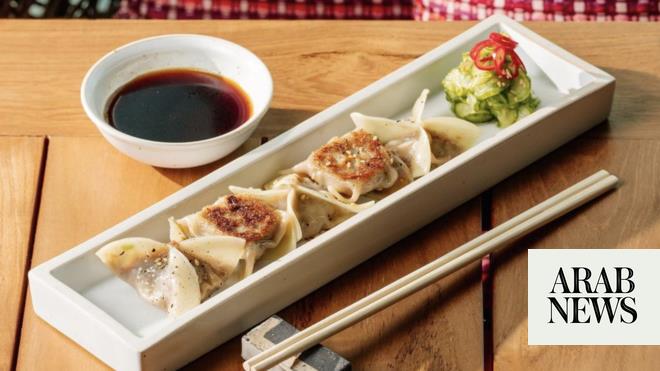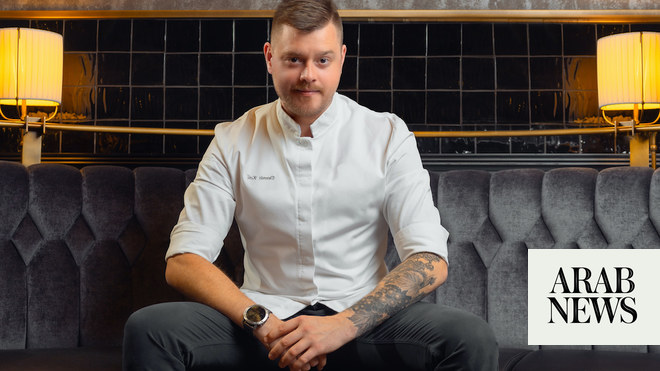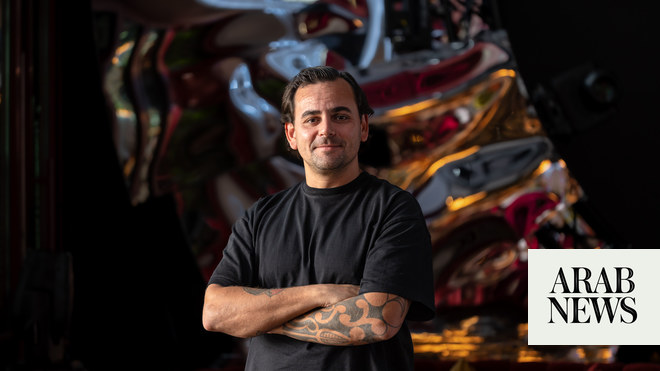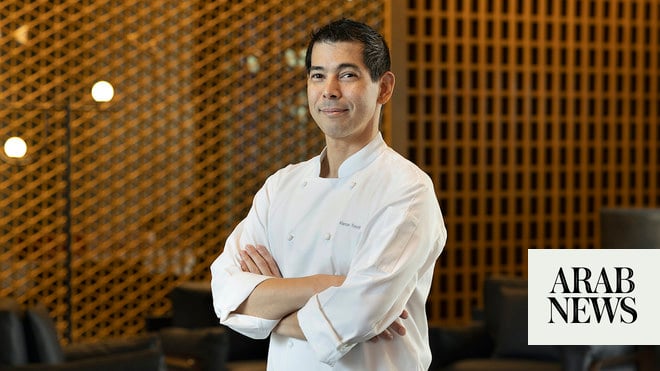
DUBAI: Even as a child, Marcus Routbard was determined to be a chef. Born and raised in Canada, the cluster executive chef at The Warner Bros. Abu Dhabi Hotel, Curio Collection by Hilton Brand and DoubleTree by Hilton Abu Dhabi Yas Island Residences, spent much of his childhood in the kitchen, discovering the flavors of Cantonese cuisine through his mother and European cuisine from his father. He quickly developed a passion for cooking.
For the latest updates, follow us on Instagram @arabnews.lifestyle
It was a passion that he enriched with education. He studied at Dubrulle International Culinary and Hotel Institute in Vancouver, his home city, and went on to combine his love for food with his interest in travel. Over the past 20 years, Chef Routbard rose through the ranks working in luxury properties in Vancouver, Toronto, Dubai, Beijing, and Osaka. This is the third time he has worked in the UAE.
Q: When you started out professionally, what was your biggest challenge?
A: One of the most difficult things to learn was cooking a steak. The firmer it is, the more well-done it is. There are at least five different levels of ‘doneness,’ which makes it a daunting task, especially when working at a steakhouse. Over 100 steaks are prepared every day and trying to perfect each one based on feeling is (really) difficult.
What’s your top tip for amateur chefs?
Relax and have fun. Ensure you taste everything along the way. If it tastes great to you, then whoever you’re cooking for will surely enjoy it.
What one ingredient can instantly improve any dish?
Salt. It sounds really simple, but seasoning “à point,” as the French say, is one of the most difficult things to teach a young chef. Over the years, I’ve learned that salt really helps bring all the other ingredients to life.
When you go out to eat, are you able to relax and enjoy the meal, or do you find yourself critiquing the food?
I have certain expectations when I’m visiting a top-flight restaurant. It’s part of my competitive nature to study cooking techniques, service, taste and menu design. The one thing I love about this industry is that it’s constantly evolving and changing with the times.
When you do go out to eat, what’s your favorite cuisine?
When I go out for a special meal, I’ll almost always order the tasting menu. These menus are meticulously crafted by chefs to represent them and their restaurant in the best manner. It’s definitely the ideal way to try their food.
What’s your go-to dish if you have to cook something quickly at home?
It’ll be Asian cuisine — something I can cook in the wok and add in lots of vegetables. It’s fast, nutritious and easy to clean up afterwards. It ticks all the boxes.
What behavior by customers most frustrates you?
I always find it disappointing when people waste food at buffets. Seeing plates of food being cleared into the garbage upsets me. We all speak about sustainability and food scarcity, yet people still overfill their plates at buffets. It’s a mindset I hope will change soon.
What’s your favorite dish to cook and why?
Short ribs. I love slow cooking them until they’re super-tender and melt off the bone. There are many variations, but my favorite is to slow cook them, place them on the grill and finish them off with a sticky glaze. The way I make this dish back home is identical to how we prepare it at The Director’s Club. It’s a clear winner.
Which dish do you find hardest to get right?
The most challenging dish for me to perfect is the brisket at The Director’s Club. The brisket is a tough area on the cow and each piece is different, so the cooking time needs to be adjusted accordingly. And the way a brisket is chopped also affects the diner’s experience.
As a head chef, are you fairly laidback? Or are you a strict disciplinarian?
I’m quite calm. I don’t shout much as I don’t think it’s necessary. I’m clear with my team about my expectations. Teamwork is absolutely essential in the kitchen. Everybody makes mistakes, but true growth lies in learning from mistakes and improving.
Chef Marcus’ black Angus short ribs
INGREDIENTS
1kg beef short ribs
100g red cabbage
25g shallot
100g leek
100g carrot
100g onion
100g celery
3 cloves of garlic
4 stem thyme
30ml honey
1L veal jus
15g salt
10g pepper
15g butter
45ml vegetable oil
INSTRUCTIONS:
Pre-heat the oven to 170c
Season liberally the short ribs with salt and pepper
Using an ovenproof pan, such as a sauteuse, heat the oil on the stove. Once the oil is hot sear the ribs in the pan until they are nicely carmelized. Remove and set aside.
Add in your onion, carrot, celery, garlic, and caramelize the vegetables.
Add back to the pot, the shortrib, with the veal jus, thyme, and honey. Put the lid on and transfer to the oven for 3 hours, 30 minutes, or until the ribs are tender (the exact cooking time will vary depending on size and shape of the ribs)
Check the ribs after about 2 hours and 30 minutes. If the veal jus has reduced, top up with some more veal jus so the pot does not dry out.
Once the short ribs feel tender and the meat is almost releasing from the bone, remove and cover with aluminum foil to maintain the heat.
Strain the liquid from the pot, removing as much of the fat as possible. Place back into a new pot, return to the stove and reduce to a syrup consistency. Finish by stirring in the butter, and adjusting the seasoning.
Return the short ribs to a pan and re-heat, use the sauce to baste over the short ribs to create a glaze.
Serve the short ribs with your favorite side, perhaps a flavorful ginger rice, or whipped potato, and roasted vegetables.





